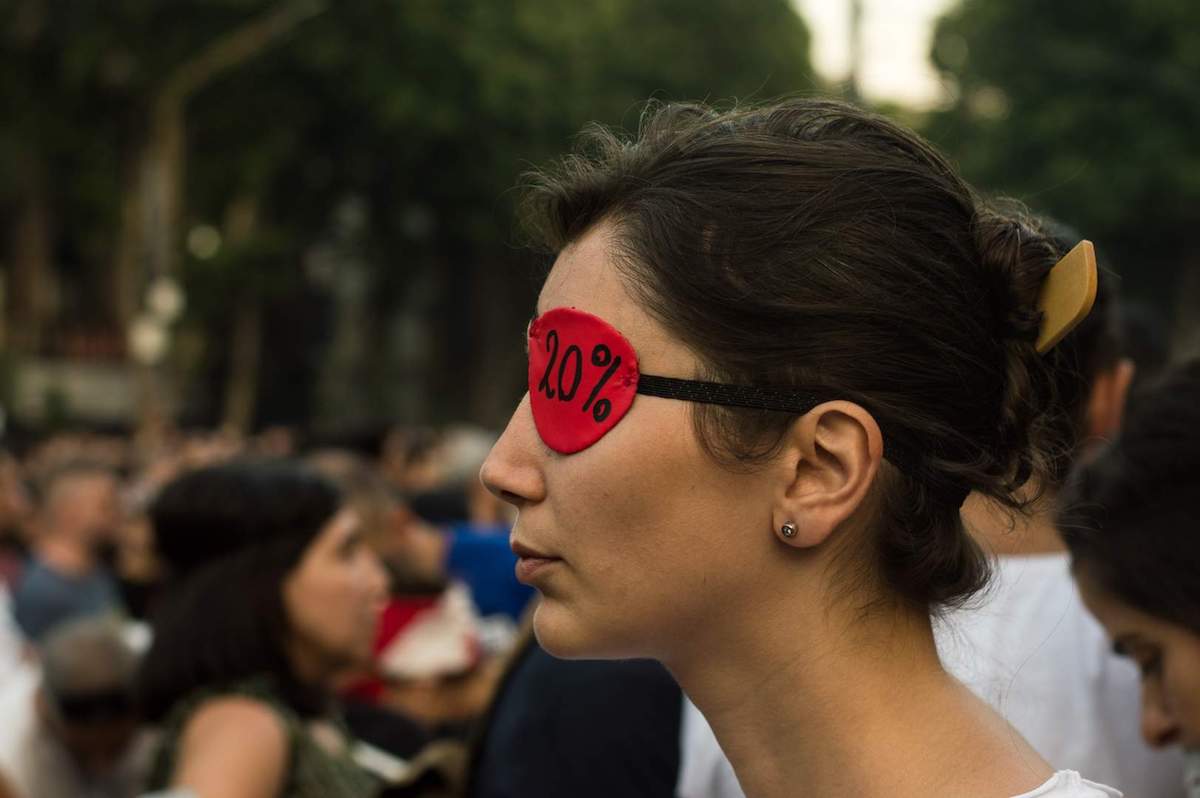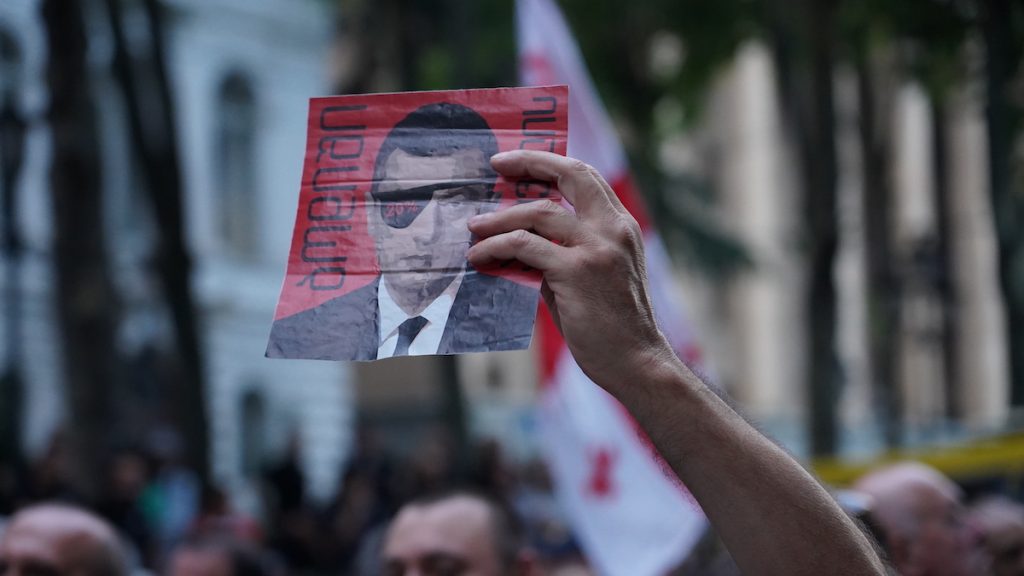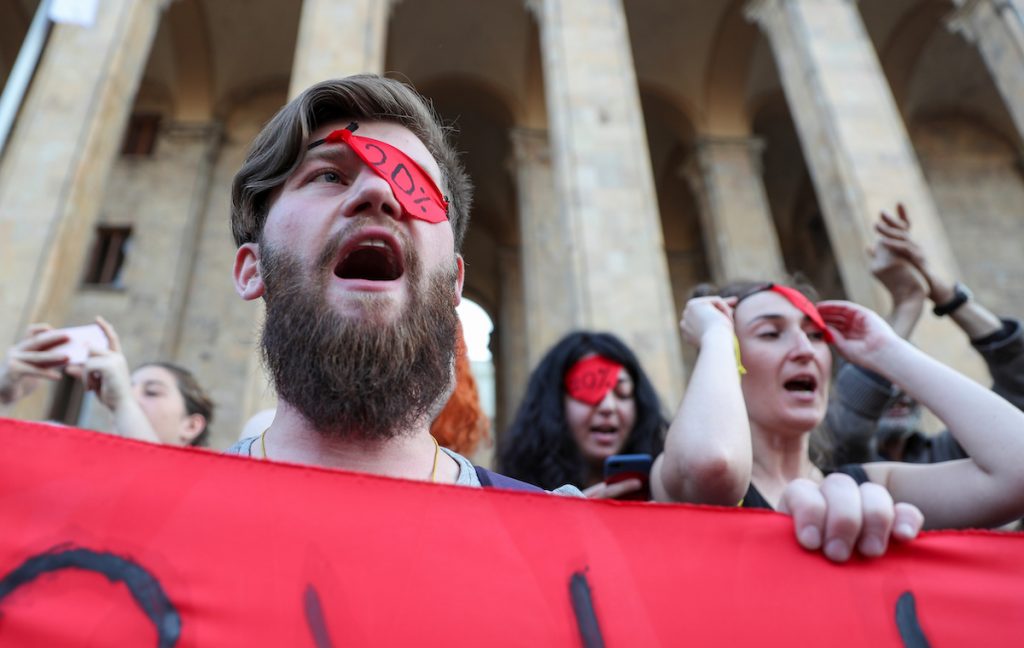Gavrilov Night's anniversary - how June 20 became symbol of violent opposition crackdown back in 2019

June 20 Gavrilov Night anniversary
On June 20, 2022, Tbilisi marks the third anniversary of the violent crackdown on a large-scale anti-government protest. The main demand of this rally was the reform of the electoral system, which the opposition has not been able to fully achieve to this day.
Police then used tear gas, water cannons and rubber bullets against thousands of young people who gathered on Rustaveli Avenue in front of the parliament building. Two people lost their eye, more than 200 were injured.
JAMnews has prepared a short summary for those who don’t remember what happened three years ago on June 20:
“Gavrilov Night” protest: what happened and why?

On the morning of June 20, 2019, a spontaneous protest began in Georgia without any prior organization.
That day, the International Orthodox Parliamentary Forum opened in the parliament. Soon it became known that one of the organizers of the forum, Russian MP Sergei Gavrilov, was chairing the meeting, sitting in the chair of the Georgian speaker.
• All you need to know about the Tbilisi protests in three minutes
• Who is the Russian Orthodox communist who provoked protests in Tbilisi?
• Georgia political crisis – the oligarch besieged from all sides
• Four protests in a night – Tbilisi takes to the streets
Soon, about a hundred people protested on Rustaveli Avenue. The spontaneous protesters addressed the Georgian government with one question:
“Who allowed a deputy of a country that does not recognize the territorial integrity of Georgia to sit in the chair of the Georgian speaker?”
By evening, it was no longer a rally, but a huge protest that swept the entire center of Tbilisi. According to various sources, up to 20,000 people gathered there. There were attempts to break into the parliament, which were beaten off by the guards. Unrest and confrontation with the police continued throughout the night.
On the morning of June 21, the special forces went on the offensive and dispersed the protest using tear gas, water cannons and rubber bullets.
More than 200 people were injured.
18-year-old Mako Gomuri and 26-year-old Giorgi Sulashvili, were injured by rubber bullets in their eyes.
Gomuri and Sulashvili were recognized as victims of police actions only five months later, after lengthy legal proceedings.
The authorities qualified the June 20 protest as an attempted coup d’état. The dispersal of the rally, according to them, was due precisely to the fact that some opposition activists called on the protesters to break into the parliament building.
Protest leaders, however, say its main goal was to secure free parliamentary elections in the autumn of 2020.
The opposition demanded a purely proportional system – elections by party, because the majority system gave the government a significant advantage from the very beginning.
On June 24, 2019, Bidzina Ivanishvili, the unofficial leader of the country, chairman of the ruling Georgian Dream party and oligarch, fulfilled one of the main demands of the protesters.
He personally promised that the majoritarian system would be abolished and parliamentary elections would be held according to the proportional system.
• Why the proportional electoral system is so important for Georgia
• Music and dancing at protests in Tbilisi. Video
However, five months after this promise, in November 2019, the government took the unprecedented step of refusing to fulfill its own promise.
During the vote in parliament on the transition to a proportional electoral system, it was the deputies loyal to the country’s shadow leader Bidzina Ivanishvili who voted against the reform.
Another demand of the protesters was also not fulfilled – the dismissal of Interior Minister Giorgi Gakharia. Instead, Gakharia was appointed prime minister. Today, Gakharia is also a memeber of the country’s opposition.
• Op-ed: why controversial ex interior minister Gakharia was appointed PM
• What Georgia’s informal leader has to do with the PM
This triggered a new wave of protests that continued throughout the summer and fall of 2019. Its symbol was a red bandage that covered one eye, with the inscription “20%”.

It was both solidarity with those who lost an eye during the dispersal of the protest on the night of June 21, and a reminder that Russia occupied 20% of Georgia’s territory.
This video tells how events unfolded after June 20 and how Georgia survived a major political crisis. Civil activists accused Ivanishvili of lying and falsifying elections. On November 14, 2019, several thousand people took to the streets again.


















